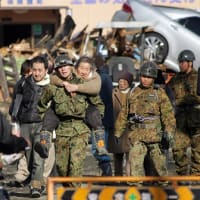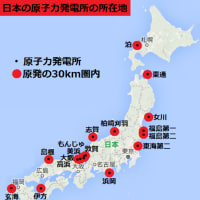COVID-19パンデミックにおけるフェイスマスクの合理的な使用
2020/5/20 ランセット
Since the outbreak of severe acute respiratory syndrome coronavirus 2 (SARS-CoV-2), the virus that caused coronavirus disease 2019 (COVID-19), the use of face masks has become ubiquitous in China and other Asian countries such as South Korea and Japan. Some provinces and municipalities in China have enforced compulsory face mask policies in public areas;
コロナウイルス病2019(COVID-19)を引き起こしたウイルスである重症急性呼吸器症候群コロナウイルス2(SARS-CoV-2)の発生以来、フェイスマスクの使用は中国や韓国や日本などの他のアジア諸国で遍在するようになりました。中国の一部の省や市町村は、公共エリアで強制的なフェイスマスク政策を実施しています。
however, China's national guideline has adopted a risk-based approach in offering recommendations for using face masks among health-care workers and the general public. We compared face mask use recommendations by different health authorities (panel). Despite the consistency in the recommendation that symptomatic individuals and those in health-care settings should use face masks, discrepancies were observed in the general public and community settings.
しかし、中国の国家ガイドラインは、医療従事者と一般市民の間でフェイスマスクを使用するための推奨事項を提供する際にリスクベースのアプローチを採用しています。さまざまな保健当局によるフェイスマスクの使用推奨を比較しました(パネル)。症状のある人と医療現場の人はフェイスマスクを使用するべきであるという勧告の一貫性にもかかわらず、一般の人々と地域社会の設定で矛盾が観察されました。
For example, the US Surgeon General advised against buying masks for use by healthy people. One important reason to discourage widespread use of face masks is to preserve limited supplies for professional use in health-care settings. Universal face mask use in the community has also been discouraged with the argument that face masks provide no effective protection against coronavirus infection.たとえば、米国の外科医総長は、健康な人が使用するためのマスクを購入しないようにアドバイスしました。フェイスマスクの普及を思いとどまらせる重要な理由の1つは、医療現場での専門的な使用のために限られた物資を保存することです。コミュニティでの普遍的なフェイスマスクの使用も、フェイスマスクがコロナウイルス感染に対する効果的な保護を提供しないという議論で推奨されていません。
Panel
Recommendations on face mask use in community settings
WHO
•
If you are healthy, you only need to wear a mask if you are taking care of a person with suspected SARS-CoV-2 infection.
健康な場合は、SARS-CoV-2感染が疑われる人の世話をしている場合にのみマスクを着用する必要があります。
China
- •
People at moderate risk中程度のリスクの人of infection: surgical or disposable mask for medical use.
**People at moderate risk of infection include those working in areas of high population density (eg, hospitals, train stations), those have been or live with somebody who is quarantined, and administrative staff, police, security, and couriers whose work is related to COVID-19.
感染の:医療用の外科用または使い捨てのマスク。
*感染リスクが中程度の人には、人口密度の高い地域(病院、駅など)で働く人、隔離されている人、または一緒に住んでいる人、COVID-19に関連する仕事をしている管理スタッフ、警察、警備員、宅配便業者が含まれます。 - •
People at low riskリスクの低い人of infection: disposable mask for medical use.
††People at low risk of infection include those staying in areas of high population density (eg, supermarket, shopping mall), who work indoors, who seek health care in medical institutions (other than fever clinics), and gatherings of children aged 3–6 years and school students.感染の:医療用使い捨てマスク。
†感染リスクの低い人には、人口密度の高い地域(スーパーマーケット、ショッピングモールなど)に滞在する人、屋内で働く人、医療機関(発熱クリニック以外)で医療を求める人、3〜6歳の子供や学校の生徒の集まりが含まれます。 - •
People at very low risk非常にリスクの低い人々of infection: do not have to wear a mask or can wear non-medical mask (such as cloth mask).
‡‡People at very low risk of infection include those who mostly stay at home, who do outdoor activities, and who work or study in well-ventilated areas.感染の:マスクを着用する必要がないか、非医療用マスク(布製マスクなど)を着用できます。
‡感染リスクが非常に低い人には、主に家にいて、野外活動を行い、換気の良い場所で働いたり勉強したりする人が含まれます。
Hong Kong
香港
- •
Surgical masks can prevent transmission of respiratory viruses from people who are ill. It is essential for people who are symptomatic (even if they have mild symptoms) to wear a surgical mask.
- サージカルマスクは、病気の人からの呼吸器ウイルスの感染を防ぐことができます。症状のある人(軽度の症状がある場合でも)は、サージカルマスクの着用が不可欠です。
- •
Wear a surgical mask when taking public transport or staying in crowded places. It is important to wear a mask properly and practice good hand hygiene before wearing and after removing a mask.
- 公共交通機関を利用するときや混雑した場所に滞在するときは、サージカルマスクを着用してください。マスクを適切に着用し、マスクを着用する前と取り外した後は、適切な手指衛生を実践することが重要です。
Singapore
- •
Wear a mask if you have respiratory symptoms, such as a cough or runny nose.
- 咳や鼻水などの呼吸器症状がある場合は、マスクを着用してください。
Japan
- •
The effectiveness of wearing a face mask to protect yourself from contracting viruses is thought to be limited. If you wear a face mask in confined, badly ventilated spaces, it might help avoid catching droplets emitted from others but if you are in an open-air environment, the use of face mask is not very efficient.
- ウイルスの感染から身を守るためにフェイスマスクを着用することの効果は限られていると考えられています。換気の悪い限られた場所でフェイスマスクを着用すると、他の人から放出された飛沫を避けるのに役立つかもしれませんが、屋外環境にいる場合、フェイスマスクの使用はあまり効率的ではありません。
USA
- •
Centers for Disease Control and Prevention does not recommend that people who are well wear a face mask (including respirators) to protect themselves from respiratory diseases, including COVID-19.
- 疾病管理予防センターは、COVID-19を含む呼吸器疾患から身を守るために、フェイスマスク(人工呼吸器を含む)をよく着用することを推奨していません。
- •
US Surgeon General urged people on Twitter to stop buying face masks.
- 米国の外科医総長は、フェイスマスクの購入をやめるようツイッターで人々に促しました。
UK
英国
- •
Face masks play a very important role in places such as hospitals, but there is very little evidence of widespread benefit for members of the public.
フェイスマスクは病院などで非常に重要な役割を果たしていますが、一般の人々に広く利益があるという証拠はほとんどありません。
Germany
ドイツ
- •
There is not enough evidence to prove that wearing a surgical mask significantly reduces a healthy person's risk of becoming infected while wearing it. According to WHO, wearing a mask in situations where it is not recommended to do so can create a false sense of security because it might lead to neglecting fundamental hygiene measures, such as proper hand hygiene.
サージカルマスクを着用することで、健康な人が着用中に感染するリスクが大幅に減少することを証明する十分な証拠はありません。WHOによると、推奨されていない状況でマスクを着用すると、適切な手指衛生などの基本的な衛生対策を怠る可能性があるため、誤った安心感が生じる可能性があります。
However, there is an essential distinction between absence of evidence and evidence of absence. Evidence that face masks can provide effective protection against respiratory infections in the community is scarce, as acknowledged in recommendations from the UK and Germany.
ただし、証拠の欠如と不在の証拠の間には本質的な違いがあります。フェイスマスクが地域社会の呼吸器感染症に対する効果的な保護を提供できるという証拠は、英国とドイツからの勧告で認められているように、ほとんどありません。
However, face masks are widely used by medical workers as part of droplet precautions when caring for patients with respiratory infections. It would be reasonable to suggest vulnerable individuals avoid crowded areas and use surgical face masks rationally when exposed to high-risk areas. As evidence suggests COVID-19 could be transmitted before symptom onset, community transmission might be reduced if everyone, including people who have been infected but are asymptomatic and contagious, wear face masks.
ただし、フェイスマスクは、呼吸器感染症の患者をケアする際の飛沫予防策の一部として医療従事者によって広く使用されています。COVID-19は症状の発症前に感染する可能性があることを示唆する証拠があるため、感染したが無症候性で伝染性の人を含むすべての人がフェイスマスクを着用すれば、市中感染が減少する可能性があります。
Recommendations on face masks vary across countries and we have seen that the use of masks increases substantially once local epidemics begin, including the use of N95 respirators (without any other protective equipment) in community settings. This increase in use of face masks by the general public exacerbates the global supply shortage of face masks, with prices soaring,
フェイスマスクに関する推奨事項は国によって異なり、地域の流行が始まると、コミュニティ環境でN95マスク(他の保護具なし)を使用するなど、マスクの使用が大幅に増加することがわかりました。一般市民によるフェイスマスクの使用の増加は、フェイスマスクの世界的な供給不足を悪化させ、価格が高騰しています。
and risks supply constraints to frontline health-care professionals. As a response, a few countries (eg, Germany and South Korea) banned exportation of face masks to prioritise local demand.
リスクは最前線の医療専門家に制約を与えます。対応として、いくつかの国(ドイツや韓国など)は、現地の需要を優先するためにフェイスマスクの輸出を禁止しました。
WHO called for a 40% increase in the production of protective equipment, including face masks.
WHOは、フェイスマスクを含む保護具の生産を40%増やすよう求めました。
Meanwhile, health authorities should optimise face mask distribution to prioritise the needs of frontline health-care workers and the most vulnerable populations in communities who are more susceptible to infection and mortality if infected, including older adults (particularly those older than 65 years) and people with underlying health conditions.一方、保健当局は、最前線の医療従事者や、高齢者(特に65歳以上)や基礎疾患のある人々など、感染や死亡の影響を受けやすいコミュニティの最も脆弱な人々のニーズを優先するために、フェイスマスクの配布を最適化する必要があります。
People in some regions (eg, Thailand, China, and Japan) opted for makeshift alternatives or repeated usage of disposable surgical masks. Notably, improper use of face masks, such as not changing disposable masks, could jeopardise the protective effect and even increase the risk of infection.
一部の地域(タイ、中国、日本など)の人々は、その場しのぎの代替品または使い捨てサージカルマスクの繰り返し使用を選択しました。特に、使い捨てマスクを交換しないなど、フェイスマスクの不適切な使用は、保護効果を危険にさらし、感染のリスクを高める可能性さえあります。
Consideration should also be given to variations in societal and cultural paradigms of mask usage. The contrast between face mask use as hygienic practice (ie, in many Asian countries) or as something only people who are unwell do (ie, in European and North American countries) has induced stigmatisation and racial aggravations, for which further public education is needed. One advantage of universal use of face masks is that it prevents discrimination of individuals who wear masks when unwell because everybody is wearing a mask.
マスク使用の社会的および文化的パラダイムのバリエーションも考慮する必要があります。衛生的な慣行(すなわち、多くのアジア諸国)または体調の悪い人々だけが行うこと(すなわち、ヨーロッパおよび北米諸国)としてのフェイスマスクの使用との対比は、さらなる公教育が必要であるスティグマ化と人種的悪化を引き起こした。フェイスマスクの普遍的な使用の利点の1つは、誰もがマスクを着用しているため、体調不良時にマスクを着用する個人の差別を防ぐことです。
It is time for governments and public health agencies to make rational recommendations on appropriate face mask use to complement their recommendations on other preventive measures, such as hand hygiene. WHO currently recommends that people should wear face masks if they have respiratory symptoms or if they are caring for somebody with symptoms. Perhaps it would also be rational to recommend that people in quarantine wear face masks if they need to leave home for any reason, to prevent potential asymptomatic or presymptomatic transmission. In addition, vulnerable populations, such as older adults and those with underlying medical conditions, should wear face masks if available. Universal use of face masks could be considered if supplies permit. In parallel, urgent research on the duration of protection of face masks, the measures to prolong life of disposable masks, and the invention on reusable masks should be encouraged. Taiwan had the foresight to create a large stockpile of face masks; other countries or regions might now consider this as part of future pandemic plans.
We declare no competing interests.
Editorial note: the Lancet Group takes a neutral position with respect to territorial claims in published maps and institutional affiliations.
政府や公衆衛生機関は、手指衛生などの他の予防策に関する推奨事項を補完するために、適切なフェイスマスクの使用に関する合理的な推奨事項を作成する時が来ました。WHOは現在、呼吸器症状がある場合、または症状のある人の世話をしている場合は、フェイスマスクを着用することを推奨しています。
おそらく、潜在的な無症候性または前症状の感染を防ぐために、何らかの理由で家を出る必要がある場合は、検疫中の人々がフェイスマスクを着用することを推奨することも合理的でしょう。さらに、高齢者や基礎疾患のある人などの脆弱な集団は、可能であればフェイスマスクを着用する必要があります。供給が許せば、フェイスマスクの普遍的な使用を検討することができます。
並行して、フェイスマスクの保護期間、使い捨てマスクの寿命を延ばすための対策、および再利用可能なマスクに関する発明に関する緊急の研究が奨励されるべきです。台湾は、フェイスマスクの大量の備蓄を作成する先見の明を持っていました。他の国や地域は、これを将来のパンデミック計画の一部と見なす可能性があります。
競合する利害関係がないことを宣言します。
競合する利害関係がないことを宣言します。
編集注:ランセットグループは、公開された地図および所属機関の領土主張に関して中立的な立場をとっています。

























